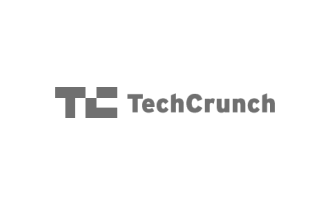Rated 4.8/5 by 1000+ users

Register your Trademark in 3 steps
Protect your unarmed idea in an affordable, faster and easier way
1
Select trademark type
Choose whether you want to trademark a Name, Logo, Sound or Slogan.
2
Trademark details
Describe what products or services you offer.
3
Select countries
Choose from 180+ countries to file your trademark in.
| Other websites and lawfirms | ||
|---|---|---|
Global Coverage Ensure that your trademark rights are protected in as many countries as possible | 180+ Countries | 1-2 Countries |
Video Consultation Personalised Loom and consultation through Google Meet with a US Licensed Attorney | ||
Fast Filing Speed Your time is valuable, we ensure that you get services in a timely manner | 3-4 Days | 1-2 Weeks |
Register for lowest price We offer you trademark protection at the lowest price | $39 | $99 |
80,000+ trademarks registered by us

Name
A name is a word such as a business name or product name that identifies a product or service

Logo
A logo is a Graphical Image with specific design that identifies a product or service

Slogan
A slogan is a short phrase that that identifies and distinguishes a product or service

Sound
A Sound is a Unique audio that that identifies and distinguishes a product or service.
See what our customers think about us
With trademarkia.com it was fast, I was served with cordiality and a lot of professionalism, they know how to do everything.
FABIO G.
Thank you so much for your help with this trademark approval. Jason has been an amazing advocate for our Brand and am confident he will resolve our conflicting trademark positively for us. Thanks so much to Jason & Trademarkia.
Susan H.
My experience so far has been great. Raj is my Lawyer and so far everything is going as planned. I am in the beginning stages but when complete will follow up.
Rachel D.
Alexis is amazing! I couldn't be happier with the guidance and support that she has provided me through this process and I definitely couldn't have done it without her. Thank you and Alexis so much.
Karen S
Working with Trademarkia, our wonderful attorney, Alexis Campbell and having Tiffeena Kahn expedite this payment process has been a pleasure.
Renee P.
Trademarkia makes this trademark process easy and efficient. Michael Markos is so helpful
Joseph M
Great Customer Service From Attorney Alexis Campbell!..She Is Outstanding!..Many Thanks!..
Juan Pineda Sanchez
Site was incredibly easy to use; I thought this process to apply for a trademark was complicated and involved a lot of information gathering..it was not.
Fiona E.
Excellent service! I’ve used trademarkia three times now and they’ve always been great. Very responsive customer service & pleasant to deal with. Straightforward process.
Remmy Warren
Attorneys with you on every step
We are featured in











